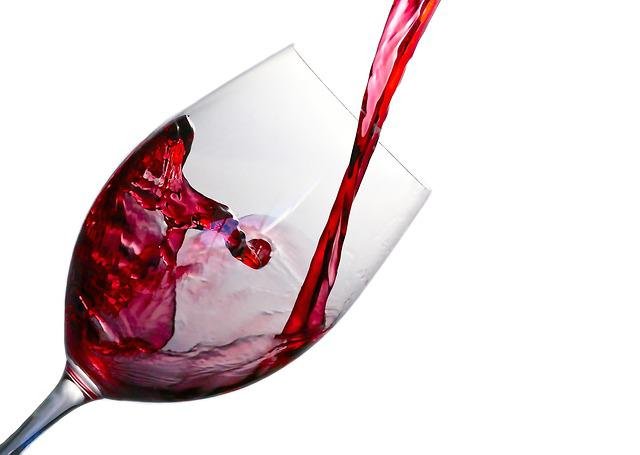Rosacea is a common skin condition that can be caused by environmental factors, genetics, or an overactive immune system. It is characterized as chronic inflammation of the skin.
A frequent side effect of heavy drinking is inflammation, to which the skin is highly reactive. Some studies suggest that moderate alcohol use can increase the risk of developing rosacea in people with sensitive skin.
Rosacea and alcohol abuse often go hand-in-hand because people who drink heavily are very prone to flare-ups and skin damage if they have a pre-existing rosacea condition. This can cause increased inflammation in the nasal area, causing discoloration and distortion of shape. This condition is often referred to as an alcoholic nose or a drinker’s nose.
Does Alcohol Use Cause Rosacea?
Alcohol use or alcoholism does not cause rosacea, but rosacea symptoms can get worse with continued or increased alcohol use.
Although there is a significant link between alcohol use and rosacea, not everyone who drinks alcohol excessively is affected by this skin condition, and not everyone that has it drinks alcohol.
This is contrary to the unfortunate stigma and belief that alcoholism and rosacea are mutually inclusive. Many people inherit and develop rosacea regardless of whether they drink or have a drinking problem.
What Is Rhinophyma?
Acute cases of rosacea that go untreated can develop into rhinophyma, a skin deformity that is distinguished by a bulbous nose with dark red or purple skin and severe scarring.
In severe cases of the alcoholic nose, the hardening of skin and swelling around the nasal cavity caused by severe rhinophyma can obstruct respiration and sometimes requires surgery.
Rosacea Symptoms
Rosacea looks like flushed or irritated skin with clusters of bumps that resemble acne. Redness can develop in the cheeks, nose, forehead, and chin, and spread to the ears, neck, head, and chest area.
Rosacea symptoms also include broken blood vessels that cause delicate facial skin to swell and harden, as well as eye irritation, redness, pain, or swelling.
Other symptoms of facial rosacea are:
- stinging or burning skin
- rough, dry patches of skin
- enlarged pores
- irritated or swollen eyelids
- broken blood vessels in eyelids
- vision difficulty or pain
How Alcohol Triggers Rosacea
The causes of rosacea are different from inflammatory triggers that exacerbate the condition, including sunlight, heat, environmental stress, chocolate, spicy foods, hot drinks, and alcohol.
The natural effects of alcohol cause body temperature to rise. Like other substances or stimuli that increase internal heat, this can trigger inflammation and subsequent reactions in the body.
Mild flushing of the skin is a normal reaction to moderate alcohol intake, and it usually subsides after alcohol leaves the system and the body temperature goes back down.
Diagnosis and Treatment of Rosacea
In cases that involve a rosacea diagnosis, dermatologists often recommend lifestyle changes such as abstaining from alcohol and other possible triggers. Wearing sun protection and sunblock also helps to control flare-ups.
Other rosacea treatments include oral or topical prescription medications and cosmetic laser treatment to reduce the visible damage caused by rosacea.
Similar Symptoms of Enzyme Deficiency and Allergic Reactions
Excessive flushing from alcohol consumption can also be attributed to an enzyme deficiency or an allergic reaction. A dermatologist can perform a medical exam to determine if a patient has rosacea or a different kind of condition or reaction to alcohol.
Some people of certain ethnicities can lack the enzyme that breaks alcohol down. Alcohol reaches toxic levels more quickly without this enzyme, causing inflammation and facial flushing.
Alcohol flush caused by an enzyme deficiency looks similar to rosacea, but does not cause skin damage or develop into rhinophyma, and is not a chronic condition.
A severe allergic reaction to alcohol is often a sign of alcohol intolerance and causes immediate redness, nausea, vomiting, rapid heartbeat, headache, fatigue, and difficulty breathing.
Final Thoughts
Whenever there is a strong adverse reaction to alcohol, it is best to avoid alcohol altogether until a dermatologist or healthcare professional can do a physical exam and make a diagnosis.
The symptoms of rosacea can appear similar to an allergic reaction or other medical conditions. Alcohol is just one of several possible factors that can trigger rosacea flare-ups.
It is never safe to assume that someone who usually drinks or heavily has rosacea or will develop it at some point in their life. It is equally inaccurate to assume someone with rosacea drinks alcohol to excess or at all.























